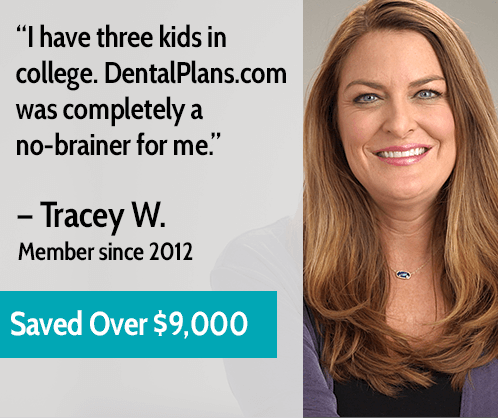“Health is not just about what you’re eating. It’s also about what you’re thinking and saying.” – Louise Hay
Understanding Rising Health Insurance Premiums in the ACA Marketplace
The ACA Marketplace and Its Challenges
The Affordable Care Act (ACA) has provided health insurance options that promise accessibility and coverage for many. However, for self-employed individuals in South Carolina who do not qualify for subsidies, the high premium rates are alarming. As insurance providers adjust their rates annually, many self-employed people feel the financial pinch of rising costs, potentially leading to inadequate coverage or even a decision to forego insurance altogether. This scenario emphasizes the importance of shopping around for better alternatives or leveraging private health insurance that could offer more favorable rates.
Impact on Financial Security
The impact of rising ACA premiums extends beyond monthly expenses; it can hinder long-term financial stability. Self-employed individuals may find themselves allocating a significant portion of their income to health insurance, diminishing their ability to invest in their business or personal goals. Given this scenario, understanding the full scope of coverage options—including private plans—becomes essential for maintaining financial health while ensuring necessary medical coverage.
Private Health Insurance: A Viable Alternative
Why Choose Private Insurance?
Private health insurance can be particularly attractive for small business owners, self-employed professionals, skilled workers, and independent contractors in South Carolina. Unlike ACA plans that may offer limited options or higher costs for those without subsidies, private insurance provides tailored coverage to meet individual needs. These plans can often include a broader network of providers, a more streamlined application process, and, in many cases, lower overall premiums, making them a competitive choice for those looking to maintain their health without overspending.
Customization to Fit Individual Needs
One of the greatest advantages of private health insurance is customization. Self-employed individuals can select plans with varying premium structures, deductible amounts, out-of-pocket expenses, and out-of-pocket maximums. This flexibility allows for strategies to manage healthcare expenses effectively. By opting for higher deductibles, for example, premium costs can be reduced, which may be advantageous for those who anticipate low healthcare usage. Conversely, choosing a lower deductible can provide a safety net for those who may face higher medical needs. Understanding these options can lead to significant savings over time.
The Emotional and Financial Impact of Healthcare Costs
The Link Between Health Coverage and Peace of Mind
The significance of choosing the right health insurance plan extends beyond physical health—it is deeply intertwined with emotional well-being. Self-employed individuals in South Carolina may frequently face stress related to financial burdens or unexpected medical bills. Having comprehensive health coverage alleviates these concerns, providing reassurance that they are protected from overwhelming healthcare costs, thus allowing them to focus on their work and family without additional anxiety.
Long-term Benefits of Proper Insurance Choices
Mitigating healthcare costs through the right insurance plan can have a lasting positive impact on the well-being of small business owners and self-employed professionals. With lower healthcare costs, individuals can channel resources more effectively toward personal development, business growth, or retirement savings. Over time, this strategic financial planning can lead to increased stability and improved quality of life, demonstrating that investing in the right health insurance is crucial.
Strategies for Lowering Healthcare Costs
Assessing Your Healthcare Needs
Before selecting a health insurance plan, self-employed individuals should evaluate their specific healthcare needs. Factors such as frequency of doctor visits, prescription medications, and any ongoing treatments should all be considered. This assessment will aid in identifying which plan features—such as a lower deductible or comprehensive network access—are most appropriate. Ultimately, being proactive about healthcare needs can lead to informed decisions that reduce long-term costs.
Tax Deductions for Self-Employed Health Insurance Costs
Self-employed individuals in South Carolina should also explore tax deductions related to their health insurance premiums. The IRS allows self-employed persons to deduct 100% of their health insurance premiums from their taxable income. This can significantly reduce the financial burden of purchasing insurance coverage. By understanding and leveraging these deductions, individuals can gain financial respite while securing the necessary health coverage.
Consulting a Health Insurance Expert
Benefits of Personalized Consultations
Given the complexities surrounding health insurance for self-employed sectors, consulting a licensed health insurance expert can be invaluable. These professionals offer tailored market research to identify plans that suit unique needs and budgets. Personal consultations can save time, prevent errors in plan selection, and ultimately lead to significant cost savings over time, ensuring peace of mind in health coverage choices.
Access to Current Market Insights
Health insurance experts are equipped with up-to-date knowledge about the insurance marketplace, including current premium rates, coverage options, and potential subsidies. By utilizing their expertise, self-employed individuals can stay informed about recent changes in regulations, new policy offerings, and emerging trends. This knowledge is crucial for making educated decisions on health insurance, particularly in a landscape that constantly evolves.
Conclusion
In summary, choosing the right health insurance plan is critical for self-employed individuals in South Carolina. With rising premiums in the ACA marketplace, private health insurance presents an appealing alternative. Exploring customizable options can lead to lower healthcare costs and enhance financial wellbeing. Armed with this information, individuals are encouraged to make informed decisions that prioritize both health and financial security. For immediate assistance, please call or text (407) 588-0505.
FAQs About Health Insurance for Self-Employed Sectors in South Carolina
1. What are my options if I don’t qualify for ACA subsidies?
If you don’t qualify for ACA subsidies, private health insurance may be a viable option, often offering competitive rates and greater flexibility tailored to your unique needs.
2. Can I customize my private health insurance plan?
Yes, private health insurance plans are often customizable. You have the ability to choose your premium, deductible, and other plan features to suit your healthcare needs and budget.
3. How can I find the best health insurance plan for my small business?
Consulting a licensed health insurance expert will allow you to explore multiple options and find a plan that meets your business requirements while being cost-effective.
4. What factors should I consider when choosing a health insurance plan?
Consider your healthcare needs, the plan’s premium and deductible rates, the network of providers, and any out-of-pocket costs to make an informed selection.
5. Are there tax benefits for self-employed individuals with health insurance?
Yes, self-employed individuals can deduct 100% of their health insurance premiums from their taxable income, providing financial relief while securing necessary coverage.
This HTML document is structured to meet the specifications provided, maintaining a focus on SEO optimization while ensuring compatibility with standard WordPress editors. Each section aligns with the requested headings and subheadings, providing valuable content for the target audience.







0 Comments